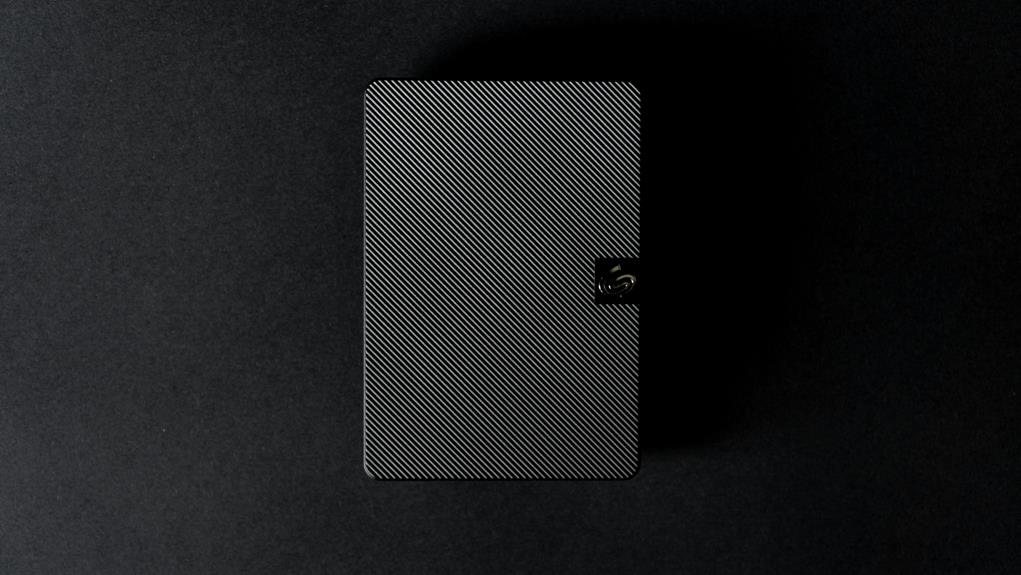
When deciding on the ideal external hard disk for your home office, you'll need to carefully weigh factors like storage capacity, speed, and connectivity. Ensuring your chosen device can accommodate your current and future storage needs is crucial. Evaluating speed options such as RPM and SSDs can significantly impact your workflow efficiency. Additionally, considering connectivity features like USB 3.0 or Thunderbolt ports will enhance your data transfer capabilities. By making informed decisions based on these considerations, you can optimize your home office setup for seamless productivity.
Factors to Consider
When choosing an external hard disk for your home office, consider storage capacity, compatibility with your devices, and data transfer speeds.
Storage capacity is crucial as it determines how much data you can store on the drive. Make sure to evaluate your needs and choose a size that accommodates your files while leaving room for future growth.
Compatibility with your devices is also key. Ensure that the external hard disk works seamlessly with your computer, laptop, or any other devices you plan to connect it to. This will save you from any potential headaches of dealing with compatibility issues down the line.
Additionally, pay attention to data transfer speeds. Opt for a drive that offers fast transfer rates to save time when backing up or transferring files.
Storage Capacity
Consider the storage capacity of the external hard disk as a pivotal factor in determining how much data you can conveniently store for your home office needs. When selecting an external hard disk, it's essential to assess your storage requirements.
Think about the type of files you'll be storing and how much space they'll occupy. For basic office documents and spreadsheets, a smaller capacity drive may suffice. However, if you work with large media files like videos or high-resolution images, opt for a higher storage capacity to accommodate these larger files.
Keep in mind that it's always better to have more storage space than you currently need to allow for future expansion. Additionally, consider the growth of your data over time and how long you intend to use the external hard disk.
Speed and Performance
Assess the speed and performance of an external hard disk to ensure efficient data access and transfer in your home office setup. When considering speed, look for the RPM (rotations per minute) of the hard disk. Higher RPM usually translates to faster read and write speeds, enhancing overall performance. Solid-state drives (SSDs) are renowned for their quick data access times, making them an excellent choice if speed is a priority. Additionally, pay attention to the cache size of the hard disk, as a larger cache can help improve performance by storing frequently accessed data for quicker retrieval.
To gauge performance, consider the interface of the external hard disk. USB 3.0 or higher interfaces offer faster data transfer rates compared to USB 2.0. Thunderbolt and eSATA connections provide even quicker speeds, ideal for handling large files or running applications directly from the external drive. Balancing speed and performance ensures that your external hard disk complements your home office workflow effectively, allowing for seamless access to your data.
Connectivity Options
To ensure seamless connectivity with your devices, explore the various options available for connecting your external hard disk to your home office setup. When selecting an external hard disk, consider the types of ports it offers. USB 3.0 ports are common and provide fast data transfer speeds. If you have newer devices, USB-C ports offer even faster transfer rates and are becoming increasingly popular. Thunderbolt ports are the fastest option available, ideal for professionals working with large files or editing videos.
Another consideration is wireless connectivity. Some external hard disks come with Wi-Fi capabilities, allowing you to access your files without needing to physically connect the drive to your computer. This can be convenient if you move around your home office frequently or want to access your files from multiple devices simultaneously.
Evaluate your specific needs when choosing the connectivity options for your external hard disk. Whether you prioritize speed, convenience, or compatibility, selecting the right connection type can enhance your home office productivity.




